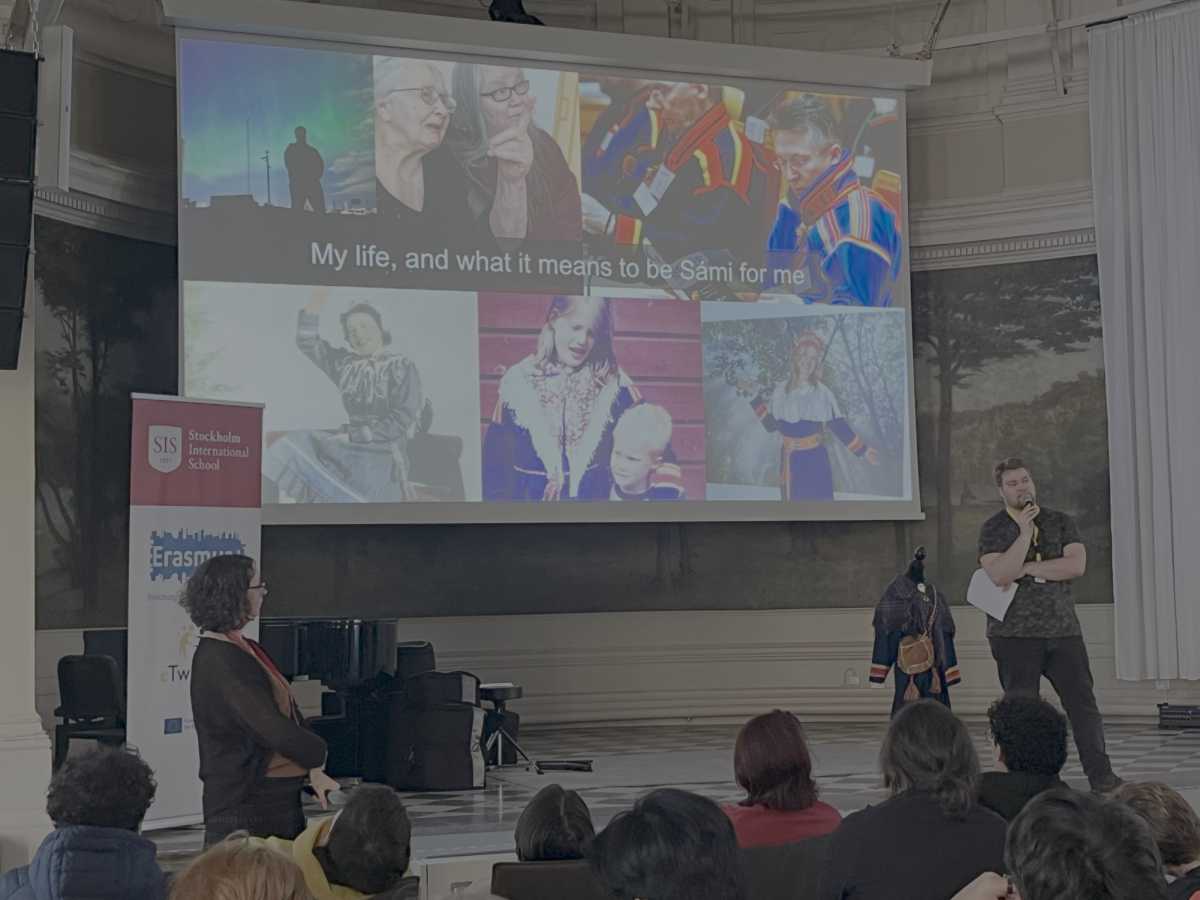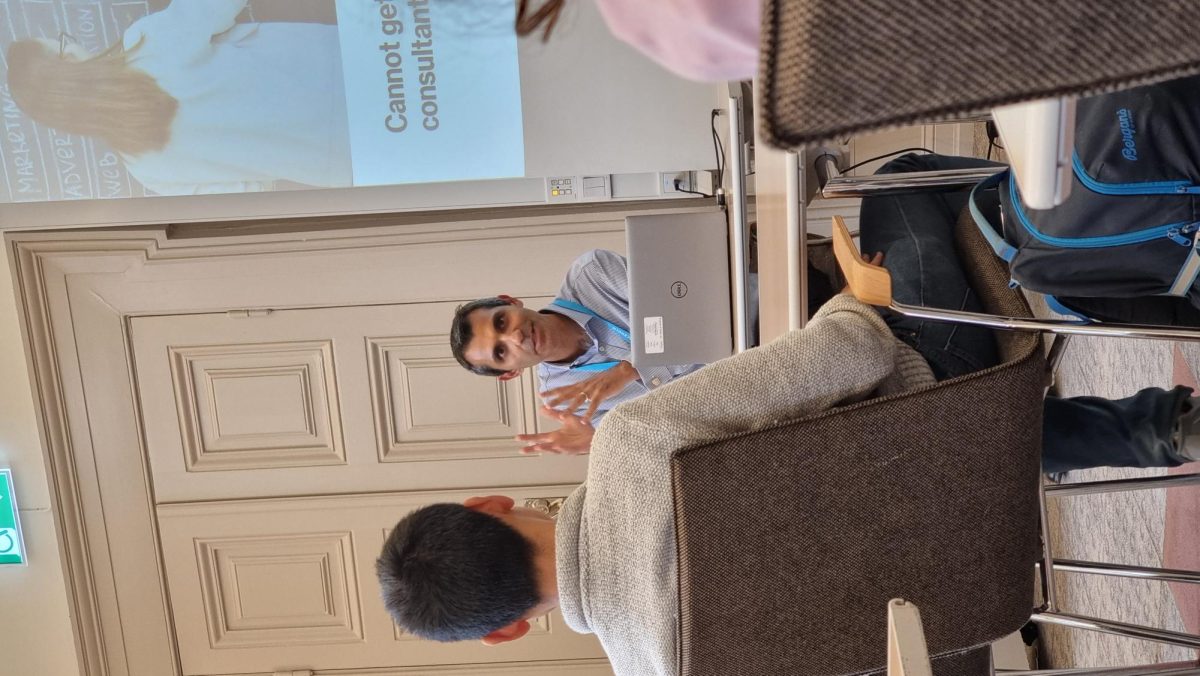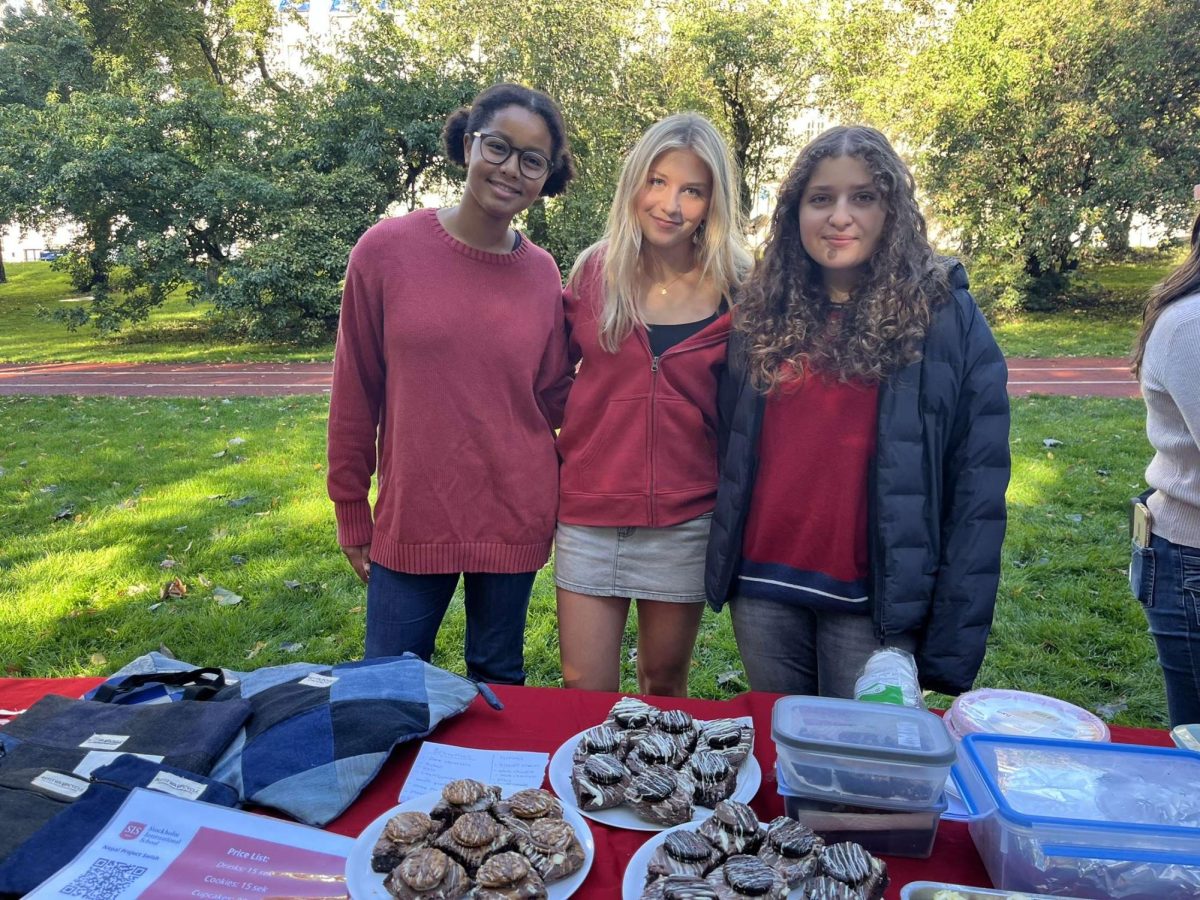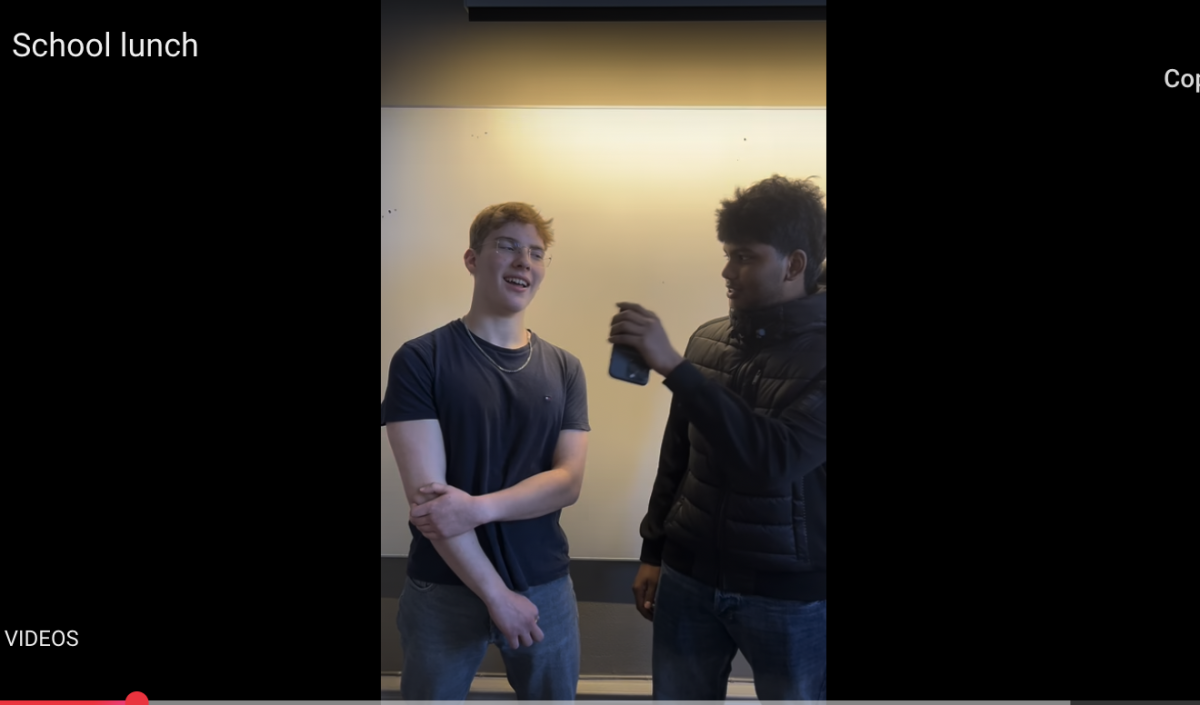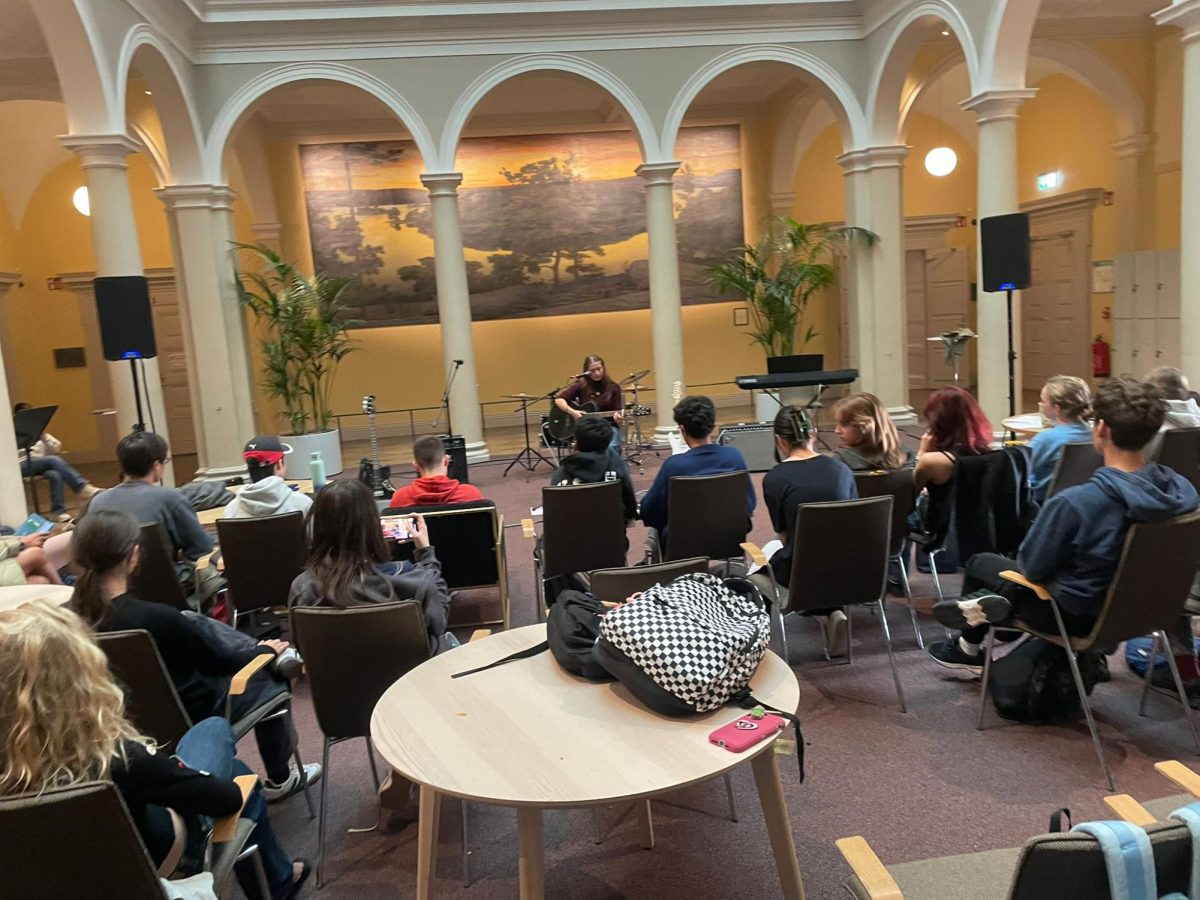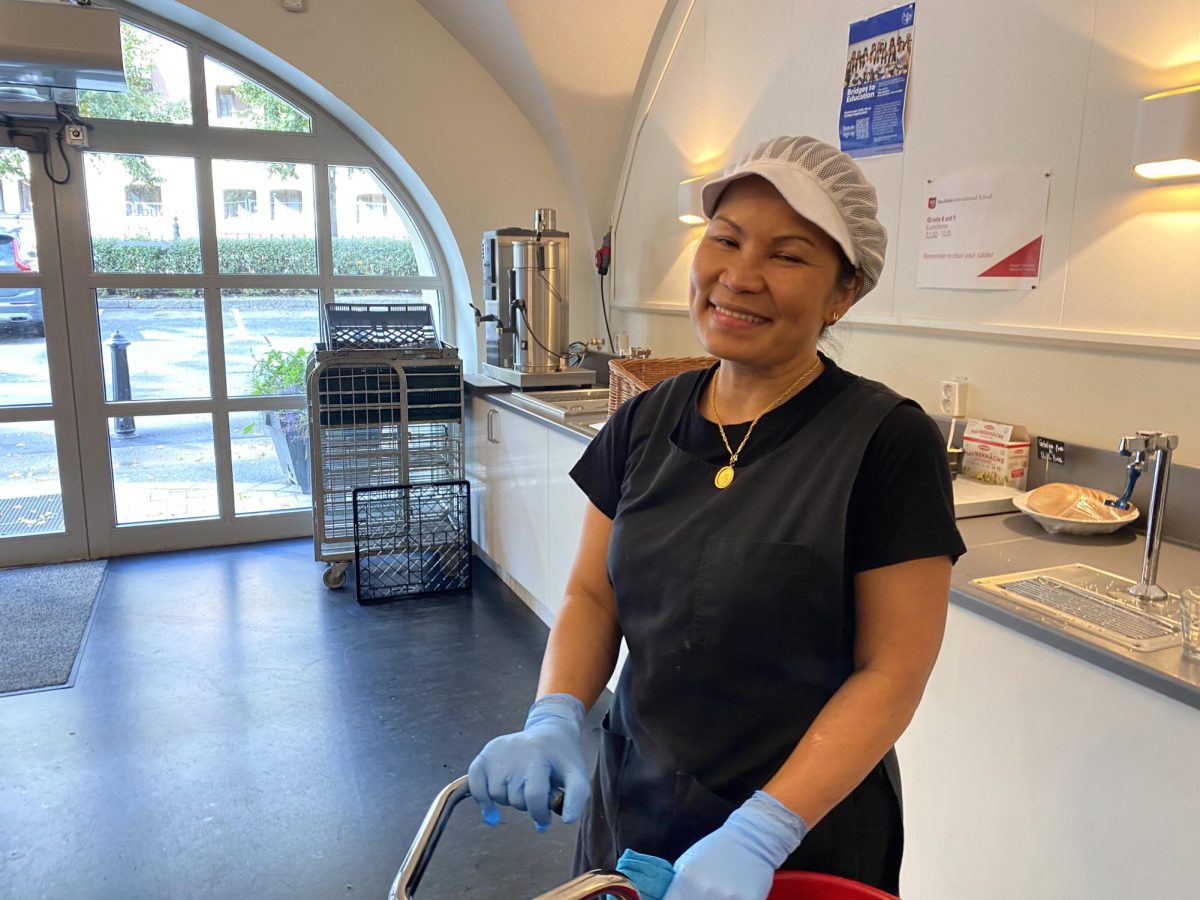Recently, students from France visited SIS as part of the Erasmus+ project. The French students experienced Stockholms urban atmosphere, taking part in a variety of activities such as workshops about minority groups of Sweden and France, outdoor experiences such as ice dipping and skating. They noticed the differences between their school in France and SIS. In terms of education, the students felt that there is a more hands-on approach to education. One student commented that in France “we have a program which sends us out for a few weeks to experience a variety of job opportunities as part of our education. This hands-on experience helps us decide what we want to do in the future, and it’s also a great way to understand what we want to do in the future!”
One of the students said she found it heartwarming to see minorities being openly accepted here in Sweden. She also enjoyed the culture here. Some of the French students felt that Sweden is much more diverse than France. One said, “In France the culture is more uniform and people tend to want to not stick out. Here people really seem to have their own distinct identity. And everyone expresses themselves in such different ways. It’s a lot more vibrant and varied.”
Maya and Pablo were 2 of the SIS students who took part in the event.
Kim: How were the initial interactions with the French students?
Pablo: Despite some difficulties, the first day everyone got along very well, but there were moments of awkwardness because we never really met any of them before. And the language barrier made things difficult. Thankfully Google Translate helped with that so we ended up managing to get along, we would hang out at my house a few times during the week as well.
Maya: Yeah, although even at first, no one wanted to spend a whole afternoon alone with their student. We all ended up joining up together at someone’s house to just hang out. Which really helped break the ice and help us get to know each other. Hanging out at someone’s house most evenings ended up being one of the best things we did that week of Erasmus.
Kim: What was the part of Erasmus+ that you both enjoyed the most?
Pablo: Since I only moved to Sweden around a year ago, a lot of what we did was new to me like the ice dipping, some of the foods and a lot of the activities we did like the ice skating. Overall it really helped me experience Swedish culture and in a way, the French students really helped us get out and do things because of their encouragement and positive presence.
Kim: Did you feel like you guys could connect with the French students and collaborate?
Maya:There were some language barriers but we got through them with Google Translate and the willingness to understand each other. And the atmosphere was really fun, positive, engaging and collaborative. Not only this but regardless of the initial awkwardness in the car, hanging out with the exchange students was fun. At the end the French students begged us to come over to France, which was really sweet and we really enjoyed being with them. So yeah, Erasmus+ ended up becoming really fun and the atmosphere was very positive, even the ice dipping was fun because the French students encouraged us to do it. I really enjoyed ice skating. I do figure skating and it was fun to help French students learn how to ice skate.
Ms Anneli Thompson is one of the Erasmus + coordinators. In this interview, she tells us a little more about the programme and the visit by the French students.
Kim: What were your thoughts on the Erasmus+ trip, like how did you see the students interacting with each other?
Ms Anneli: It’s always a challenge when working with a school where they are predominantly one language speaking country like France is, so we already knew that was going to be a challenge, and the students were worried about it. But of course like anything, that’s part of what Erasmus+ is about. It’s about crossing over the borders and the difficulties and finding ways to communicate, interact and form friendships or like working relationships because you know we are working together as two teams.
Kim: There must be language barriers?
Ms Anneli: There were language barriers, but there are wonderful things called Google Translate, and they are professionals at using it now. But actually in both ways it’s putting yourself out there to be vulnerable, and I always try to set an example. So I put myself forward and use my limited French to show that if I’m willing then they might be willing and the French kids try to use their English, the Swedish kids try to use their French, and we survived a week and I think they did it very well and I’m very proud of all the students.
Kim: So they were able to get through those challenges and interact with each other?
Ms Anneli: Yeah exactly. Especially as international students, a lot of these kids in the future will have to deal with language barriers in whatever profession they might do. One of the main ways to do this is global citizenship, and we are supposed to be global citizens. It’s learning to overcome those obstacles and finding ways, whether it be Google Translate or forming a friendship and even learning the language. Culturally we are very different as well. And that’s sort of the Idea with Erasmus+ – learning about our different cultural differences.
Kim: Was there any culture barrier that they were able to overcome like between both groups?
Ms Anneli: We are completely different kinds of schools and from completely different backgrounds. Like I said, language was the main barrier. Our wonderful families did a great job trying to make their guests feel at home, to try out Swedish foods but also their international foods because very few of our students are actually Swedish. Doing a lot of outdoor activities – the French were not used to doing that. This is sort of why when Mr AI, Ms Pongo and I sat down to plan the event, we wondered about what we could do to represent Sweden in winter time. Of course a lot of it was outdoors, with activities such as grilling outdoors and we went extreme by doing ice dipping and warming up in the sauna. Basically the French students got to experience Sweden in the winter.
Kim: Basically there was a cultural exchange, which really is what Erasmus+ is all about.
Ms Anneli: And also what Sweden is about. Fika is a big part of our everyday life where we can have coffee and meet and talk around about something sweet, you know that was probably their favorite part. But then we also do a lot of walking. The French said, ‘we have never walked so much in our lives.’ Since most of them come from small villages their way of transport is cars, whereas we are a public transport based society. The French team loved using public transport and the fact that one card allowed them to use trains, boats and so on. And actually they had all asked to keep the SL card at the end. This is why I’m so passionate about Erasmus+, because as a program where it’s not about getting a week ‘off’, or going on a holiday.” It’s not a holiday, it’s a working week. Like you are learning, leading presentations, we have themed workshops and so on, but at the same time you are..
Kim: ..you are opening your horizons.
Ms Anneli: And yes. In many cases for students it’s the first time they are away from home on their own without family to a different country where they are living with a family that’s not their own for a week. So now we are going to the Netherlands and they are going to live with a family they have never met. I’ve been doing this for almost 10 years, they come out of it so much richer. There will be things which are difficult but they learn to overcome it.
Kim: Would you say it takes courage?
Ms Anneli: It does. It’s not an easy program to be in, it’s not something where you just sit and hang out, we do a lot of classwork for each mobility. You would have to step out of that comfort zone to constantly speak to people who you don’t know, experience new things and try new things.
Kim: Sounds amazing.
Ms Anneli: It is. It is truly amazing.


